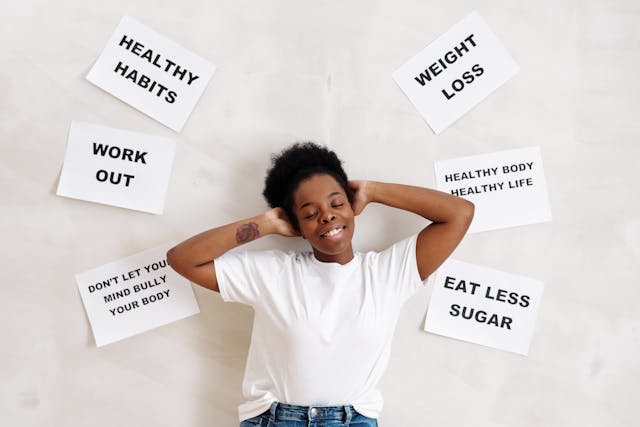The so-called experts claim that it takes 21 days to create a new habit. Why this particular number? Where are the supporting stats to validate this claim?
How comes it seems so much easier and quicker to pick up a bad habit than to form a new and lasting, positive one?
Perhaps the answer to this question is different for each person. You probably know someone who quit smoking. Did the person go “cold turkey?”
Or, did they fade out their cigarette habit over time, dwindling down from a pack a day, to half a pack, to 5 smokes a day, to 3, and finally, to being a non smoker?
What types of new behaviors did said quitter establish in place of the undesirable one? How much time did all of this take? If you asked all your friends who quit smoking how long it took them, how many different answers would you get?
Truth be told, two different people can have two very different approaches to replacing bad habits with good ones, and therefore the time that it takes to reach their goal can vary greatly.
So how long does it really take to create a new habit? The answer is that it depends. It depends on your mindset and it depends on how big of a change it is from what you are doing now.
If you habitually eat a bowl of ice cream at night, and you decide to instead snack on some low-sugar frozen yogurt, it probably won’t take that long to establish the new habit.
But what if you wanted to eliminate night-time eating altogether? This would probably take much longer, to go from giant bowl of ice cream, to just having a glass of water before bed.
The question “How long does it take to create a new habit” is likely just code for “How long do I have to tough it out before this gets easier? Is there a light at the end of the tunnel where we don’t have to try so hard anymore?”
In other words, when will this new behavior become automatic?
Below, a few considerations to keep in mind on your journey to establishing good habits:
It’s easier to form a new habit than to ditch an old one.
To use the smoking example again: let’s say you’re trying to cut out that afternoon cigarette. Instead, you can make it a habit to enjoy a cup of coffee at the time when you’d usually have your smoke.
If you want to change your habits, change your environment first.
It’s pretty difficult to skip that smoke break if you still go and stand outside with your smoking buddies at 3 pm each day. Change your surroundings and you’ll change your habits.
Maybe now is the time to form a ritual where you head down to the caf for a cup of coffee, or visit the vending machine to pick up a pack of gum or a bottle of water.
Give yourself props for placing props.
We all have our stuff – equipment, tools, apparel, etc. that we need to accomplish whatever we set out to do. If you intend to make a habit of going out for a walk, then store your sneakers in a place where you’ll be able to find them quickly and easily at the same time each day.
Think about it, how often do we let a misplaced item derail us? “Oh well, I don’t know where my sneakers are. I’ll just eat this delicious donut instead.”
Remember the why.
Habits are created with the bigger picture in mind. Why are you trying to exercise more? So you can be healthy, live longer and be around to see your grandchildren’s children.
Why are you saving money? To enjoy that dream vacation. It often helps to put up an actual picture so we can remember the big picture of why we’re working so hard to improve in the first place.
Yes, it takes time to create new habits, or replace poorly chosen habits with smart ones. Instead of asking ourselves “how long does it take,” maybe a better question is “How long will it take ME?”
It’s up to you to determine the answer.
